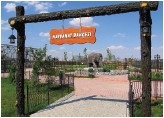The Present Perfect Tense
Present Perfect Tense en açık ifadesiyle etkisi bitmemiş geçmiş zamandır. Türkçe’de karşılığı olmayan bu zamanı zaman oku üstünde anlayalım.

Görüldüğü üzere geçmişte başlamış hareket bulunduğumuz ana kadar devam etmiştir.
Bitişinin ne zaman olduğu ile ilgili yorum yapılamaz. The Present Perfect Tense ve The Simple Past Tense arasındaki temel farklılık da budur.
Aşağıdaki örneklere dikkat edelim.
1. My sister is sleeping. She has slept for seven hours.
2. My sister slept nine hours last night.
1. örnekte fiili henüz tamamlamamış olan kişinin bulunduğumuz ana kadar ne kadarını tamamladığı anlatılmıştır. Fiil devam etmektedir.
2. örnekte bitirilmiş bir fiilden bahsedilmektedir.
Zaman verilmiştir.

1. The girls have arrived at the dormitory.
2. Sema has finished her homework.

1. The girls haven’t arrived at the dormitory.
2. Sema hasn’t finished her homework.

1. Have the girls arrived at the dormitory?
2. Has Sema finished her homework?
Short Answers
1. Yes, they have No, they haven’t
2. Yes, she has No, she hasn’t
Ever / Never
Kullanımları yine Present Perfect Tense’e özgü olan bu yapılar aşağıdaki durumlarda kullanılır.
a. Ever
Soru cümlelerinde kullanılır. Anlamı ‘daha önce, hiç’tir. Present Perfect Tense’li cümlelerde özneden hemen sonra gelir.

1. Have you ever been to Japan ?
— Yes, I have — No, I haven’t
2. Has your father ever given you a present?
— Yes, he has. — No, he hasn’t
3. Have the patients ever examined the doctor?
— Yes, they have — No, they haven’t
b. Never
Simple Present Tense’te de bulunan bu kullanım asla, hiç anlamına gelmektedir. Anlamca olumsuz olduğu için sadece olumlu, düz cümleleri olumsuz yapmak için kullanılır. Asla ‘not’ la birlikte kullanılmaz. Yardımcı fiilden sonra gelir.

1. The children have never seen the sea.
2. My sister has never read that book.
3. I have never watched ‘Titanic’
Superlative Form Of the Adjectives + Present Perfect Tense
Sıfatların en üstünlük derecesiyle kalıpsal olarak ortaya çıkarken bu kullanım bugüne kadar gördüğümüz, duyduğumuz ‘en’ leri anlatmak için kullanılır.

YOU ARE THE MOST BEAUTIFUL GIRL

I HAVE EVER SEEN
Full Form
You are the most beatiful girl I have ever seen.
(Bugüne kadar gördüğüm en güzel kızsınız.)
Examples:
1.

Monkeys are the funniest animals we have ever seen.
2.

Whales are the biggest animals I have ever seen.
3.

Pyramids are the most interesting place she has ever visited.
4.

This is the highest mountain I have ever seen.
Note: Normalde sadece soru cümleleriyle kullanılan ‘ever’ in sadece bu kalıpta düz cümlede de kullanıldığına dikkat ediniz.
lately, recently
‘Son günlerde’ şu sıralar anlamına gelirler. Cümlenin sonunda kullanılırlar.
I haven’t seen John lately.
We haven’t been to a concert recently.
Note: ‘so far’da aynı anlamı veren bir kullanımdır.
Been / Gone
“be” ve “go” fiillerinin üçüncü hali olan “been” ve “gone” fiillleri Present Perfect Tense’te rastgele kullanılmazlar.
been: Bir yere gidilmiş ve henüz geri dönülmüş anlamına gelir.
gone: Bir yere gidilmiş ancak geri dönülmemiştir.
Examples:
1. a. A: Where is your sister?
B: She isn’t here. She has gone to Paris
b. A: Where is your sister?
B: She has been to Paris but she is at home now.
1. a. Look at that house. There aren’t any people in our neighbour’s house. I think they have gone to Marmaris for holiday.
b. Look at that house. There are some suitcases in front of the door. I think our neighbours have been to Marmaris for holiday.
2. a. Alan is abroad. He has gone there for
work. He’ll be back in a few days.
b. Alan has been to abroad. He is here with a lot of presents.
3. a. Look at her. She has gone to Africa for a week. She is here, with us now.
b. I miss her much. She has gone to Africa and she’ll be back next month
lately, recently
‘Son günlerde’ şu sıralar anlamına gelirler. Cümlenin sonunda kullanılırlar.
I haven’t seen John lately.
We haven’t been to a concert recently.
Note: ‘so far’da aynı anlamı veren bir kullanımdır.
1.

a. We haven’t visited the zoo lately.
b. We haven’t visited the zoo so far.
c. We haven’t visited the zoo recently.
2.

a. The doctors haven’t examined the patients lately.
b. The doctors haven’t examined the patients so far.
c. The doctors haven’t examined the patients recently.
[sinif_8_sbs_ingilizce]

çok teşekkür ederim çok yardımcı oldu . inşallah yazılımda sizin sayenizde yüksek alırım .